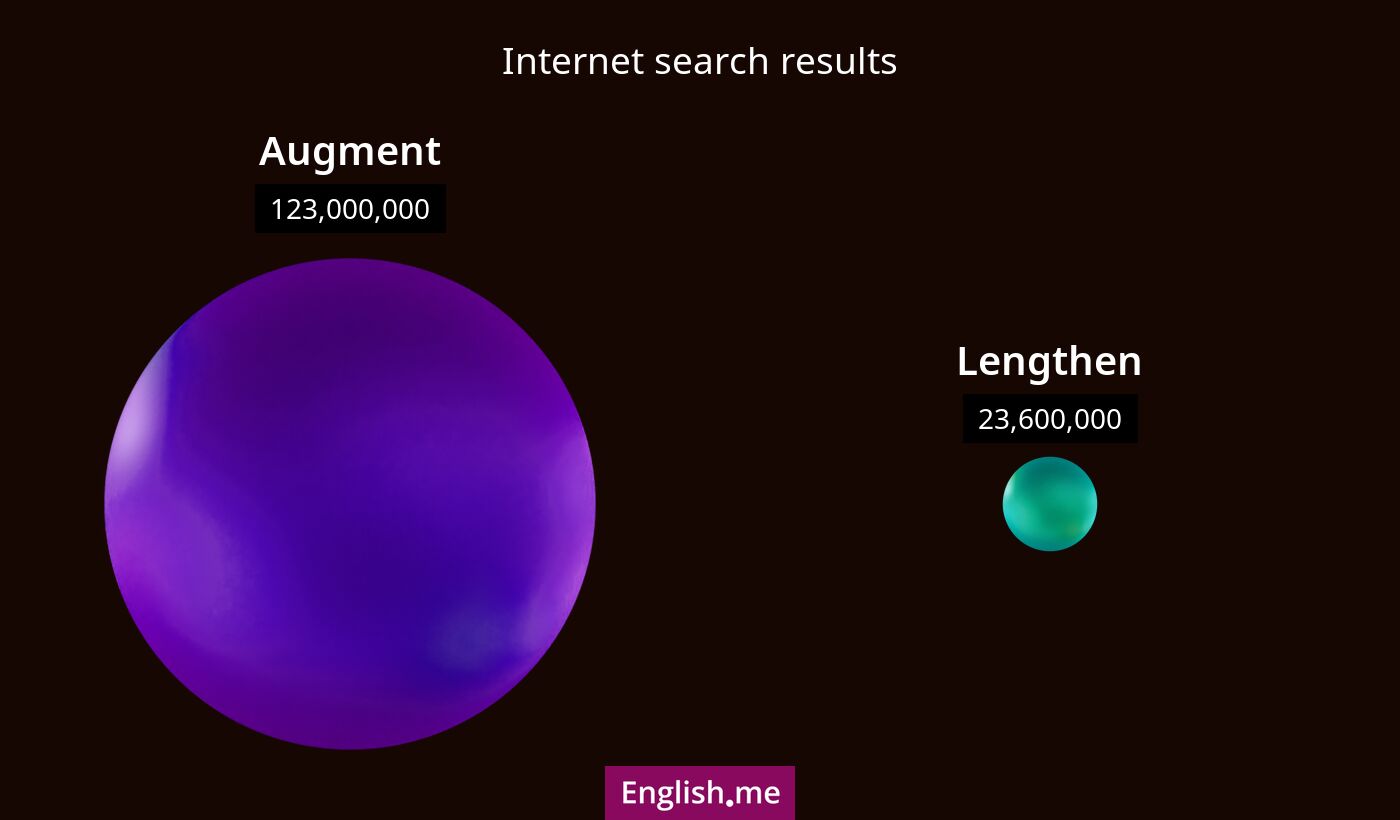"Augment" vs. "lengthen": expanding beyond dimensions
Reviewed and edited by  Lloyd Cooper 12/10/2024, 00:27
Lloyd Cooper 12/10/2024, 00:27
English.me team member

 What is similar?
What is similar?
Both words involve the concept of making something larger or longer. Both can be used in a variety of contexts, such as time, physical size, or abstract concepts.
 What is different?
What is different?
Augment typically implies adding or increasing something in quantity, size, or degree, often improving or enhancing it. Lengthen specifically refers to increasing the physical or temporal length of something.
 Which one is more common?
Which one is more common?

 Examples of usage
Examples of usage
Augment- The company plans to augment its workforce by hiring more engineers.
- She took a course to augment her skills in project management.
- The artist decided to augment the painting with additional colors.
- The tailor needs to lengthen the sleeves of the jacket.
- We need to lengthen the meeting by another hour to cover all topics.
- She decided to lengthen her hair by getting extensions.

 English
English español
español française
française italiano
italiano deutsche
deutsche 日本語
日本語 polski
polski česky
česky svenska
svenska Türkçe
Türkçe Nederlands
Nederlands